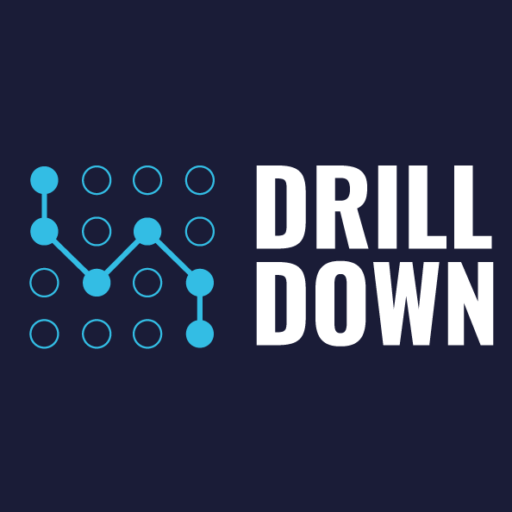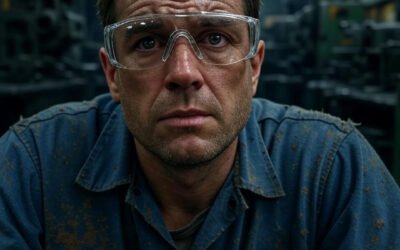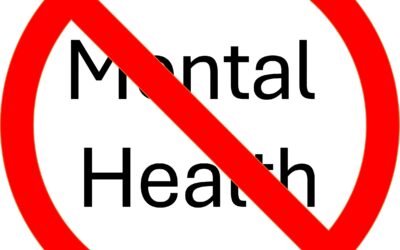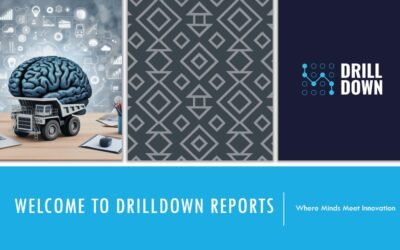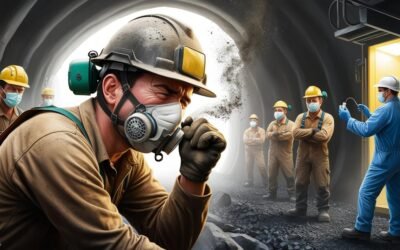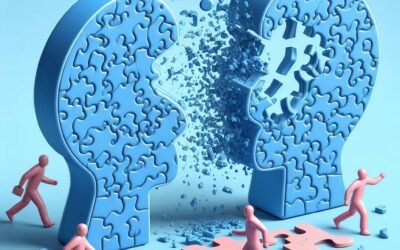WELCOME TO OUR MENTAL HEALTH BLOG!
At drilldownreports.com, we believe mental health is as vital as physical safety in the workplace, especially in the demanding environments of mining, banking and related industries. This blog is your go-to space for practical insights, actionable strategies, and thought-provoking discussions around mental health.
We focus on more than just raising awareness—we’re here to share preventative measures and real-world solutions that can be integrated into daily practices. From managing stress and building resilience to fostering supportive workplace cultures, our posts aim to equip individuals and companies with the tools they need to thrive.
Whether you’re a business leader, an HR professional, or someone simply looking to improve well-being in the workplace, our blog is designed to inform, inspire, and empower. Let’s work together to make mental health a priority in every aspect of life and work.
Explore, learn, and grow with us!
The Hidden Toll: How Job Losses Fuel Mental Health Crises and Suicide Risks
Hey there. This blog post delves into the often-overlooked mental health impacts of job loss, beyond just financial strain. It explores how unemployment can trigger issues like depression, anxiety, and heightened suicide risks, backed by research from the WHO and The Lancet. Drawing on global studies and historical examples like the Great Recession, it highlights causes such as identity loss, isolation, and stigma. The piece wraps up on a hopeful note, suggesting strategies like better workplace support, therapies, and community programmes to aid recovery, while urging readers to seek help if affected.
Youth in the Crossfire: Job Market Struggles and Suicide Prevention for the Next Generation
This blog explores the tough job market facing young people globally, highlighting high unemployment and NEET rates from sources like the ILO and OECD, and how these fuel mental health struggles such as anxiety, depression, and increased suicide risks, as noted by the WHO and CDC. The piece then shifts to hopeful prevention strategies, including CDC-backed economic supports, mental health integration in job programmes, and helplines like 988, wrapping up with a call for action and community discussion to safeguard the next generation’s wellbeing.
From Campus to Cubicle: Navigating Mental Health in Your First Banking Job
Good to see you! This blog explores the mental health hurdles new graduates face when shifting from university life to an entry-level banking role, highlighting issues like burnout, anxiety, depression, toxic workplace cultures, and substance abuse risks amid long hours and high pressure. It draws on credible research to explain why these arise, offers practical strategies such as building support networks, prioritising self-care, and seeking professional help, and lists resources including global organisations, industry reports, and local South African helplines like SADAG. Overall, it reassures readers that these challenges are common and manageable for a sustainable career.
Entry-Level Blues: Mental Health Tips for Young Adults Starting in Mining
Greetings! This conversational blog dives into the “entry-level blues” faced by young adults kicking off in the mining industry, a blend of stress, isolation, and adjustment hurdles from long shifts and remote work. It draws on credible research to outline common mental health challenges like anxiety, depression, fatigue, and social pressures, with a nod to South African contexts. Then, it shares practical, evidence-based tips in bullet points for building routines, staying connected, managing stress, seeking support, and monitoring habits. It wraps up with handy resources like helplines, apps, and workplace programmes, encouraging readers to prioritise mental wellbeing without stigma. Overall, it’s an empathetic guide to thriving in a tough field.
Mental Health in High-Pressure Industries: Why Mining and Banking Need Tailored Strategies
The blog explores mental health challenges in the high-stress industries of mining and banking, highlighting their unique pressures. In mining, 29% of workers face psychological distress due to long shifts, isolation, and risks like cave-ins, with 50% of South African miners reporting stress. Banking sees 62% of firms noting stress spikes and 82% of employees facing burnout, driven by long hours and high-pressure decisions. The blog contrasts mining’s physical dangers with banking’s cognitive overload and argues that generic mental health solutions fail. It proposes tailored fixes: for mining, policies to address risks and reduce stigma; for banking, capped hours and peer support programmes like Barclays’ Mental Health Champions. Custom strategies boost productivity, reduce absenteeism, and support resilient teams.
The Role of AI Chatbots in Everyday Mental Health
In this relaxed exploration of AI chatbots’ role in everyday mental health, we dive into how apps like Wysa and Woebot offer accessible, 24/7 support for managing stress, anxiety, and mood, backed by studies showing symptom reductions of up to 51%. It highlights perks like affordability and personalisation, especially relevant in South Africa where resources are limited, while candidly addressing downsides such as limited empathy, crisis-handling risks, and privacy concerns. Real-world examples and future trends round it out, urging readers to use these tools as supplements to professional care.
Level Up Your Mind: The Therapeutic Power of Gaming for Emotional Balance
Hey there! This engaging blog post, titled “Level Up Your Mind: The Therapeutic Power of Gaming for Emotional Balance”, explores how video games can serve as a powerful tool for boosting mental health, particularly in achieving emotional balance. Drawing on credible research from sources like the American Psychological Association, it highlights gaming’s benefits in reducing stress through immersive ‘flow’ states, building emotional regulation skills via in-game challenges, and easing symptoms of depression and anxiety with therapeutic or commercial titles. It also touches on caveats like moderation to avoid overuse, positioning gaming as a fun, supplementary aid for wellbeing in high-pressure lives.
Sleep Hygiene for Better Mental Clarity: Essential Habits for Young Adults
Hello there! This insightful blog post explores sleep hygiene as a vital tool for young adults to enhance mental clarity and mental health amid busy lifestyles like exams or early careers. Backed by sources such as the WHO and APA, it highlights why quality rest is crucial, defining sleep hygiene as consistent routines, relaxing wind-downs, and optimal environments. It details benefits like improved focus and reduced anxiety, warns of risks from poor sleep such as mood swings and cognitive fog, and offers practical habits: steady schedules, screen-free evenings, a restful space, mindful intake, and daily movement. Overall, it’s an empowering guide to better rest for resilience, with a nudge to seek help from groups like the South African Depression and Anxiety Group if needed.
Cultivating Self-Compassion: A Guide for Young Adults Battling Perfectionism
Hi everyone! This insightful blog post explores the mental health pitfalls of perfectionism for young adults, such as heightened risks of depression and anxiety from societal pressures and self-criticism. It positions self-compassion (through kindness, shared humanity, and mindfulness) as a key antidote, backed by research from the WHO and APA showing it builds resilience, boosts happiness, and eases emotional distress. The piece offers practical steps like self-kindness practices, journaling, mindfulness exercises, realistic goal setting, and seeking support, empowering readers to foster a healthier self-view. Overall, it’s a compassionate roadmap to overcoming perfectionism’s grip.
Engineering Mental Resilience: Addressing Stress in High-Risk Manufacturing Environments
This blog explores mental health challenges in the demanding manufacturing sector, emphasising the need to build resilience against stress in high-risk settings like chemical plants and assembly lines. It highlights unique pressures such as safety hazards, long shifts, and workload overload, drawing on insights from the World Health Organisation (WHO), American Psychological Association (APA), and other reliable sources. The piece unpacks the impacts, including anxiety, burnout, and increased accident risks, before offering practical strategies like stress management training, supportive workplace cultures, wellness programmes, workflow adjustments, and self-care practices. It wraps up by encouraging readers to prioritise wellbeing and share their own tips.
Mental Health Risks in IT Workplaces: Coping with Tech Overload and Isolation
Hey, there! This intriguing blog piece digs into the significant mental health dangers in IT workplaces, focusing on tech overload (the constant flood of messages and multitasking) and isolation from remote settings. It investigates how these factors contribute to stress, anxiety, burnout, and loneliness, with statistics indicating burnout rates of up to 66% in IT roles. It then provides new, practical coping tactics, ranging from setting digital limits and encouraging connections to leveraging wellness programmes and advocating for cultural shifts in teams. Overall, it’s a proactive approach to developing resilience, with reminders to seek help if necessary, such as from the South African Depression and Anxiety Group.
The Role of Physical Activity in Boosting Young Adult Mood and Focus
Hey there! This engaging blog post explores the vital role of physical activity in enhancing mood and focus for young adults dealing with life’s uncertainties, such as job pressures or social media overload. Backed by credible sources like the WHO and APA, it explains how exercise releases feel-good chemicals like endorphins and serotonin to combat anxiety and depression, while improving brain function for better concentration. It details benefits including reduced stress and sharper cognition and offers practical tips (like aiming for 150 minutes of weekly movement through walks, yoga, or team sports) to incorporate it into daily routines. Overall, it’s an empowering guide to using movement for mental resilience, with a reminder to seek professional help if needed.
Overcoming Anxiety in Daily Life: Tools for Young Adults Facing Uncertainty
Hey there! This engaging blog post addresses the rising challenge of anxiety among young adults (18-29) amid uncertainties like job instability and life transitions, citing WHO and APA data showing a 52% global increase in cases from 1990-2021, exacerbated by events like COVID-19. It explains anxiety’s roots in unpredictability, its mental and physical impacts (such as depression, sleep issues, and social withdrawal) and offers practical, evidence-based tools, including mindfulness, cognitive reframing, exercise, social support, and CBT-inspired exposure. Overall, it’s an empowering guide encouraging resilience, with a reminder to seek professional help if needed, like from the South African Depression and Anxiety Group.
Navigating Burnout in the Banking Sector: Strategies for Financial Professionals
Hey there! This engaging blog post delves into the pressing issue of burnout in the banking sector, defining it as a WHO-recognised syndrome from unmanaged chronic stress, marked by exhaustion, job detachment, and reduced efficacy. It explores causes like intense workloads, long hours, and economic pressures, backed by global studies showing prevalence rates of 19-54% among financial professionals, with recent 2024-2025 stats highlighting high attrition risks. The piece discusses mental health impacts, including anxiety, depression, and performance dips, before offering practical strategies (such as setting boundaries, using EAPs, mindfulness practices, and organisational changes) to help pros navigate and prevent it. Overall, it’s an empowering, actionable guide for thriving in high-pressure finance.
Loneliness in New Beginnings: How to Stay Mentally Strong When Starting Over
Hey there! This engaging blog post tackles the often-overlooked challenge of loneliness during life transitions like moving, job changes, or breakups, explaining how it stems from disrupted social networks and can amplify mental health issues such as anxiety, depression, and stress. Backed by credible research, it highlights the profound impacts, including physical and cognitive effects, while offering practical, evidence-based strategies (like rebuilding connections, pursuing hobbies, prioritising self-care, using tech wisely, and reframing thoughts) to foster resilience and combat isolation. Overall, it’s an empathetic guide reminding readers they’re not alone and empowering them to thrive in new beginnings
The Power of Small Wins: Building Mental Resilience in Your 20s
Hey there! This engaging blog post delves into the empowering role of small wins (those everyday achievements like ticking off tasks or taking a walk) in building mental resilience during your 20s, a time filled with transitions and challenges like anxiety or stress. Backed by research, it explains how these wins boost dopamine, self-efficacy, and motivation, while countering burnout and fostering long-term well-being. It offers practical tips, such as breaking goals into steps, tracking progress, and practising self-compassion, to help young adults cultivate grit and agency. Overall, it’s an uplifting guide to turning minor victories into lasting mental strength.
Social Media vs. Self-Esteem: Protecting Your Mental Health in the Digital Age
Hey there! This engaging blog post explores the complex link between social media and self-esteem, highlighting how excessive use can erode confidence through social comparisons, body image issues, FOMO, and cyberbullying, often leading to anxiety and depression, especially among young people. Backed by research, it also notes potential positives like building connections and support for marginalised groups. It wraps up with practical tips, such as setting time limits, curating positive feeds, prioritising offline self-care, and seeking help, to protect mental health in the digital era. Overall, it’s an empowering read on mindful online habits.
Beating Overwhelm: Simple Mental Health Tools for Surviving Your First Adult Years
This conversational blog offers practical advice for young adults feeling overwhelmed during their early twenties, drawing from credible sources like the Mental Health Foundation and Healthline. It explains why overwhelm hits hard in this life stage (due to transitions like starting work or managing finances) and emphasises recognising it as a first step. The post outlines simple, evidence-based tools: deep breathing and grounding techniques for immediate calm; short bursts of exercise to boost mood; time in nature while limiting screens; prioritising sleep and routines; balanced eating paired with self-compassion; and journaling, meditation, plus seeking support from friends or professionals. It wraps up encouraging small, consistent steps and highlights resources like SADAG for extra help, all in an engaging, supportive tone to help readers build resilience.
Hey There, Let’s Talk About That Career Crossroads: Navigating Insecurities and Trusting Your Path as a Young Adult
Hey there! This engaging blog post dives into the common career insecurities faced by young adults, highlighting how they often start as early as ages 15-20 due to pressures like family expectations and multiple passions (think dreaming of becoming a vet while loving baking). It explores the mental health toll, such as anxiety and depression from indecision, backed by research and real-life examples. Then, it offers practical strategies, like seeking counselling, building self-efficacy, adopting smart coping habits, and leaning on support networks, to foster confidence and trust in your path. Overall, it’s an encouraging read that reassures readers they’re not alone and empowers them to navigate these crossroads with resilience.
Why We Hesitate: A Peek into Mental Health Across Generations
Ever wondered why so many of us shy away from mental health support? From stigma to sky-high costs, barriers abound, but they hit differently across generations. Gen X battles old-school taboos and a “tough it out” mindset, while Millennials juggle financial strain and social media overload. Gen Z? They’re open about mental health but face access issues and modern pressures like climate anxiety. With 37% of Gen Z, 35% of Millennials, and just 26% of Gen X seeking therapy, the gap’s clear. Join us as we unpack these challenges and explore how we can break down the walls to better mental health—because everyone deserves a chance to thrive.
Navigating the Mental Health Maze: Kids with Corporate Parents
Ever wondered how the corporate grind impacts the kids at home? Whether it’s one parent burning the midnight oil or both tackling high-pressure jobs, the stress can ripple into family life, shaping children’s mental health from toddlerhood to the teen years. For little ones, it might mean fewer cuddles or disrupted routines, leading to emotional wobbles. School-age kids could feel the weight of big expectations, while teens might wrestle with anxiety in a world of plenty but little connection. Drawing from solid research, this blog unpacks these challenges by age and family setup, offering insights to navigate the hustle with heart. Keep reading for a friendly dive into making it work for your kids!
Hey There, Let’s Chat About Spotting Good Mental Health in 2025
Ever wondered if your mental health is in a good spot? In 2025, experts from the WHO and CDC highlight key signs like coping well with life’s stresses, feeling generally positive and hopeful, and nurturing supportive relationships. It’s not about perfection, it’s about balance, resilience, and enjoying the everyday. If you’re bouncing back from setbacks and finding joy in simple things, you’re likely on solid ground. Remember, if things feel off, chatting to a professional is always a smart move. Stay well!
How US Tariffs Might Hit South Africans Where It Hurts Most: Our Mental Health
Hey there, fellow South Africans. If you’ve been following the news lately, you’ll know that those new US tariffs – set to kick in from 1 August 2025 at a hefty 30% on most of our exports – are stirring up quite the storm. We’re talking about potential job losses in the tens of thousands, especially in agriculture, automotive, and manufacturing sectors. With our unemployment rate already above 32%, this could feel like another punch to the gut for many families. But beyond the economic headlines, have you stopped to think about how this might affect our collective mental wellbeing? Let’s chat about it, because mental health is something we can’t afford to ignore in times like these.
First off, let’s recap the basics. The tariffs could hit our R200 billion annual exports to the US hard, with up to 35,000 jobs at risk in citrus farming alone, 10,000 to 15,000 in automotive, and more in mining and manufacturing – potentially totalling 50,000 to 100,000 losses. That’s real people facing uncertainty in an already fragile economy.
Now, here’s where it gets personal: unemployment doesn’t just empty your wallet; it can wreak havoc on your mind. Research shows joblessness links strongly to higher depression, anxiety, and suicidal thoughts, often causing stress, despair, isolation, and low self-esteem. It’s a vicious cycle that deepens feelings of hopelessness, especially in vulnerable rural communities.
The Hidden Cost of Mine Closures: A Look at the Mental Toll on Workers and Communities
When the Assmang Cato Ridge Smelter in South Africa announced its closure, 600 workers faced an uncertain future. It’s not just a job loss—it’s a blow to their identity, sparking anxiety and fear about what’s next. The ripple effect hits the community hard, with local businesses struggling and a collective grief settling over towns like Cato Ridge. Mine closures, like this one or the Blyvooruitzicht gold mine, remind us of the mental toll on workers, communities, and the mining industry itself. Yet, amidst the loss, there’s hope—stories of resilience show that with support, people can rebuild. We need to talk about the human cost and push for better support to help those affected find a new path forward.
The Hidden Struggles of Leaving a Job: What Employees Really Face
Have you ever felt stuck in a job, yearning for a change but paralyzed by fear? The decision to leave a job is fraught with emotional turmoil—stress, anxiety, and guilt—coupled with practical concerns like career growth and financial stability. Discover the hidden struggles employees face and how to navigate them in our latest blog post.
Embracing Change: Managing Mental Health and Emotions in Mining and Banking
Change can feel like a whirlwind, especially in high-pressure industries like mining and banking. New tech, shifting rules, or restructured teams can stir up stress and uncertainty. But here’s the bright side: with mindfulness and a few practical tools, you can navigate these transitions while keeping your mental health strong. Simple practices like deep breathing or staying connected with colleagues can ground you. Embrace change as a chance to grow—you’ve got this!
Bouncing Back: How to Navigate Job Transitions with Resilience
Switching jobs can feel like stepping onto a wobbly tightrope—exciting, but a little scary. Psychologically, it’s a big deal: you’re not just changing roles, you’re navigating fear of the unknown, a potential loss of identity, and even financial stress. An APA survey found 81% of workers crave mental health support during these shifts, and it’s no wonder why! But here’s the good news: resilience can carry you through. Lean on your friends for a pep talk, reframe anxious thoughts with positive ones, and take time to say goodbye to your old job for closure. A study in the Journal of Vocational Behaviour shows that staying adaptable lowers stress, so set new goals and keep moving forward. You’ve got this—one resilient step at a time!
The Hidden Blueprint: Building Mentally Strong Project Teams
Discover the key to building mentally strong project teams in our latest blog, “The Hidden Blueprint: Building Mentally Strong Project Teams.” From the high-stakes world of capital projects to the fast-paced banking sector, learn how to foster a culture that prioritizes mental health alongside performance. Packed with practical strategies, this blog reveals how to normalize stress conversations, support team well-being, and create resilient teams that thrive under pressure. Because a project’s success is only as strong as the people behind it.
Thriving as a New Mom in the Mining Industry: 30 Practical Tips for 2025
Being a new mom in the mining industry is a bold journey—long shifts, remote sites, and a tough work culture can make motherhood feel like an uphill climb. But in 2025, the tide is turning! With women making up 15-20% of the mining workforce and companies rolling out flexible schedules and on-site childcare, there’s hope for balancing career and family. From negotiating shorter FIFO rosters to tapping into mental health resources, our 30 practical tips empower first-time and seasoned moms to thrive. Join the wave of change and discover how to shine as a mining mama!
Behind the Screens: The Real Talk on IT Mental Health
IT pros in mining and banking keep the world spinning, but the stress? It’s real. From FIFO isolation in Aussie mines to battling cyberthreats in city banks, 1 in 3 IT folks faces chronic stress in 2025. Burnout, “always-on” vibes, and scarce support hit hard. But here’s the good news: tech like AI chatbots and wearables, plus better workplace vibes, can help. Want to know how? Check out the full blog at https://drilldownreports.com/mental-health-blog/ for tips to keep you online, not just the systems.
Why are companies wasting money on Mental Health?
Companies are pouring cash into reactive mental health fixes like Employee Assistance Programs (EAPs) that barely 5% of workers use—talk about a financial black hole! These band-aid solutions mop up burnout after it hits, costing billions in lost productivity. Flip the script: proactive training in CBT, mindfulness, and emotional intelligence builds a resilient workforce that prevents crises, slashes sick days, boosts output by 12%, and cuts turnover by 25%. Stop wasting money on clean-up—invest in prevention and watch profits soar.
Why People Struggle to Prioritize Mental Health: A Psychological Perspective
Why do we sidestep mental health? Psychologically, it’s a tangle of unseen forces. Cognitive distortions twist our view—minimizing struggles until they erupt. Stigma whispers shame, driving avoidance coping to dodge the pain. Our executive functioning buckles under life’s load, leaving no room for self-care. Caught in an approach-avoidance conflict, we crave relief but fear the dive into psychotherapy. Social media’s upward comparison stings self-esteem, fuelling rumination. Yet, hope lies in neuroplasticity—our brains can shift. A breath, a chat, a step toward metacognition can start the change. You’re not broken; you’re human, and that’s enough.
Navigating Uncertainty: A Guide for South Africa’s Mining and Banking Employees in 2025
South Africa, 2025: a landscape of uncertainty where political tremors, economic storms, and environmental pressures converge. If you’re a miner or a banker, you’re not just witnessing this—you’re living it. But amidst the chaos, there are ways to stand firm. This blog post is your guide, offering tailored strategies to secure your job, protect your health, and keep your spirit unbroken. Because in times like these, resilience isn’t just an option—it’s your lifeline.
Understanding Trauma from Mining Incidents in South Africa
South Africa’s mining industry, a global powerhouse employing over 477,000 people, is marred by hazardous conditions that lead to devastating accidents. In 2022, 49 miners lost their lives, according to the Department of Mineral Resources and Energy, leaving a trail of physical and psychological trauma. From crush injuries and burns to acute stress and Post-Traumatic Stress Disorder (PTSD)—affecting 25–30% of survivors, per the South African Journal of Psychology (2020)—the impact ripples through miners, families, coworkers, and communities. Trauma reduces productivity, increases safety risks, and fuels a 10% annual turnover rate, as reported by the Minerals Council South Africa (2022). Yet, mining companies fall short in addressing these challenges, with only 20% offering on-site counselling (SAHRC, 2020) and minimal support for families. Cultural stigma and reactive policies further hinder progress. The 2018 Sibanye-Stillwater disaster, where 35% of survivors showed PTSD symptoms, underscores the urgent need for comprehensive mental health infrastructure, leadership training, government support and stigma reduction to heal South Africa’s mining workforce and strengthen the industry.
Harnessing Agile for Mental Health Initiatives in Mining and Banking
In the high-pressure worlds of mining and banking, mental health challenges like stress, burnout, and isolation are all too common. Agile project management offers a game-changing solution. By using short, iterative cycles called sprints, Agile allows companies to design mental health programs that evolve with employee feedback. In mining, a company might pilot resilience workshops tailored to shift workers, refining them based on real-time input. In banking, Agile can deliver stress management tools that adapt to market demands. Collaborative, flexible, and data-driven, Agile ensures mental health initiatives hit the mark—building healthier, more resilient workforces in even the toughest industries.
Transforming Mental Health in Mining and Banking
At Drilldown Reports NPC, we’re transforming mental health in mining and banking with free resources and innovative coaching. Our uKukhula Coaching blends CBT, NLP, and Mindfulness, tailored for roles like miners and bankers, to build resilience, reduce stress, and boost productivity. Partner with us to drive well-being, meet B-BBEE goals, and lead with purpose. Mental health isn’t just a right—it’s a business imperative.
Bridging Mindfulness and Western Religions
Mindfulness, with its roots in Buddhist philosophy, has sparked both interest and controversy within Western religious communities, particularly among Christians and Jews. Concerns about its Eastern origins, theological conflicts, and secular framing often create tension. Yet, these challenges can be overcome. By fostering open dialogue, adapting practices like centering prayer for Christians or hitbodedut for Jews, and emphasizing shared values like compassion and presence, mindfulness can enhance spiritual life without compromising faith. This blog explores the reasons behind the divide and offers practical steps to integrate mindfulness respectfully, creating harmony for all.
Destigmatizing Mental Health in African Cultures
Mental health stigma in African communities often stems from cultural beliefs linking mental illness to spiritual causes like witchcraft or ancestral displeasure, hindering help-seeking and isolating those affected. To bridge traditional perspectives and modern approaches, culturally resonant practices like Kusintha (Bantu for contemplation) and Ukuqaphela (Zulu for awareness) can be integrated with mindfulness. Kusintha fosters communal reflection through storytelling, while Ukuqaphela promotes collective awareness via rituals like drumming. Adapted mindfulness, using local idioms, complements these practices. By combining these in community-led workshops and media campaigns, we can normalize mental health discussions, reduce stigma, and promote well-being across African cultures.
Depression in the South African Banking Industry
Depression poses a significant challenge in South Africa’s banking industry, driven by high work-related stress, economic pressures, and cultural stigma surrounding mental health. General population studies indicate a lifetime prevalence of major depression at 9.7%, with finance sector-specific data suggesting that 36% of workers experience frequent stress or anxiety, and 44% report overwork negatively impacting mental health. Major banks like FirstRand and Nedbank have implemented wellness programs that likely include mental health support, such as counselling and stress management, though detailed public information is limited. Industry-wide, only 25% of finance companies offer resilience training, highlighting a gap in proactive mental health support. While preventive tools show benefits like an 18% increase in productivity, challenges such as stigma and limited resource access persist. Banks must enhance accessibility, awareness, and preventive measures to better support employees.
Depression in South Africa’s Mining Industry
The South African mining industry, a cornerstone of the nation’s economy, employs approximately 477,000 people as of 2023, contributing significantly to GDP and global mineral production. However, the industry’s demanding work environment—characterized by long shifts, physical hazards, and social isolation—poses substantial mental health challenges for its workforce. Among these, depression emerges as a critical issue, affecting miners’ wellbeing, safety, and productivity. This Blog examines the prevalence and impact of depression in the sector, supported by statistics and metrics, and evaluates the interventions implemented by mining companies, including their effectiveness.
The State of Mental Health in the Banking industry
Excerpt: The State of Mental Health in South Africa’s Banking Industry
South Africa’s banking sector is a high-stakes world where stress from targets, regulations, and economic pressures takes a toll on mental health. With 36% of finance workers facing frequent stress and a recent tragedy at Standard Bank highlighting gaps, the need for action is clear. Major banks like Absa, Nedbank, and FNB are stepping up with counselling and mindfulness programs, but stigma and resource limits persist. Drilldown Mindful Banking offers AI-driven solutions to build resilient workplaces, helping bankers thrive in a challenging landscape.
Post-Traumatic Stress Disorder (PTSD) in the Mining Industry: A Detailed Overview
Post-Traumatic Stress Disorder (PTSD) poses a significant challenge in the mining industry, where workers face traumatic events like cave-ins, explosions, and fatalities. Studies estimate that 5–20% of miners experience PTSD, with rates soaring to 25–30% after disasters like Turkey’s 2014 Soma tragedy. Isolation, hazardous conditions, and a ‘tough it out’ culture exacerbate the issue, particularly for underground and FIFO workers. While interventions like peer support and telehealth show promise, stigma and limited access continue to hinder progress in addressing this critical mental health crisis.
Mindfulness Practices Tailored for Miners
The mining industry is a beast—long shifts, roaring machinery, and the constant weight of safety on your shoulders. Stress is part of the deal, but it doesn’t have to own you. Mindfulness, a simple practice of staying present, is proving its worth even in this rugged world. Think short breathing exercises during a break or a quick body scan to shake off fatigue—small moves that fit into the grind. Research, like a 2018 study from the International Journal of Occupational Safety and Ergonomics, showed miners who tried mindfulness cut their stress and sharpened their focus. It’s not about escaping the job; it’s about facing it with a steadier mind. Next shift, take a minute to breathe deep and feel your boots on the ground. It might just change the game.
Digging Deeper: The Crisis of Gender-Based Violence in Mining
In the depths of the mining industry, a hidden crisis festers gender-based violence (GBV). From South Africa’s gold mines, where harassment is an “open secret,” to the DRC’s chaotic artisanal camps, women face assault, coercion, and trauma daily. Our 22-page report, Gender-Based Violence in the Mining Industry, exposes this epidemic—its toll on victims, its cost to companies, and its stubborn persistence despite new policies and training. Mining’s male-dominated, isolated world fuels GBV at rates rivalling construction and healthcare, yet solutions like South Africa’s 2024 guidelines and programs like RISE offer hope. But gaps remain, weak enforcement, ignored informal sectors, and cultural resistance. Curious about the full story and how we can end this? Check out the blog and download the report for the deep dive.
Broaching Mental Health with Bosses in the Mining Industry: A Guide for Men
Men in the mining industry face unique barriers when discussing mental health, particularly in a setting that prizes toughness and resilience. For white men, Western norms of stoicism can make vulnerability feel like a weakness; black men may contend with racial mistrust and resilience expectations; while Asian men might avoid the topic to preserve family honour or ‘face.’ To safely broach this with a boss, framing is key—white men might emphasize performance, black men could build trust gradually, and Asian men may use indirect language like, ‘I’ve been feeling overwhelmed lately.’ Identifying a receptive boss, one who shows empathy or supports well-being, is critical. Across mining regions like Australia’s ‘mateship’ culture or Chile’s machismo-driven workplaces, tailoring the approach to local norms can make these conversations less daunting and more effective.
Dementia Risk in the Mining Industry: What the Research Says
Emerging research suggests a troubling link between working in the mining industry and an increased risk of dementia. Studies, such as a 2021 investigation in Ontario, Canada, found gold miners had a 1.49 times higher risk of Alzheimer’s disease, while West Virginia data showed dementia mortality soared 15.60 times higher in mountaintop removal mining counties. From historical aluminium dust exposure via McIntyre Powder to ongoing concerns about nickel and particulate matter, the evidence points to unique occupational hazards that may harm miners’ brain health. While not definitive, these findings call for urgent action to protect workers.
Using Toolbox Talks to Discuss Mental Health on Mine Sites: A Practical Guide
Mining is tough—physically and mentally. Long shifts, isolation, and high risks take a toll. Toolbox talks, already a safety staple, are the perfect platform to tackle mental health head-on. They build resilience, boost safety, and show workers they’re valued. Discover practical tips and resources like Drilldownreports’ guide to help your team thrive.
Beneath the Surface: Revolutionizing Mental Health in the Mining Industry
The mining industry powers the world, but its workforce faces unique mental health challenges often ignored in favor of physical safety. A new report from Drilldownreports.com, “Mental Health in Mining: Case Study 2025,” reveals the hidden toll of these pressures and proposes a game-changing solution: integrating mental health into occupational health and safety (OHS) with AI and wearable tech. This blog explores why generic fixes fail, how tailored strategies can transform mining, and the urgent need to act now for a safer, healthier future.
Health Check Kiosks: Revolutionizing Mental health, Safety and Wellness in Mining
In the rugged, high-stakes world of mining, where workers endure extreme conditions and long shifts, health and safety are non-negotiable. A minor health issue—like fatigue or elevated blood pressure—can quickly escalate into a serious incident in this unforgiving environment. Enter health check kiosks: automated stations that allow miners to monitor vital signs such as blood pressure, heart rate, and oxygen levels in mere minutes. These innovative tools are emerging as a cost-effective solution for mining companies to enhance employee well-being, boost safety, and meet growing regulatory and sustainability demands. In this blog, we’ll dive into a detailed study on health kiosks in mining, exploring their benefits, challenges, real-world applications, and what the future holds.
The Silent Crisis in Mining: Why Suicide Rates Are Skyrocketing
Mining is tough—long hours, remote locations, high-risk work. But beyond the physical dangers, there’s a silent crisis unfolding. Suicide rates among miners are among the highest of any profession, with isolation, job insecurity, and mental health stigma pushing workers to the brink.
Why is this happening? What’s being done? And how can we stop more lives from being lost?
In this blog, we uncover the real statistics, the harsh realities of mining culture, and the urgent changes needed to protect the mental health of those who keep the industry running.
Are Employee Assistance Programs (EAP’s) failing in Mining
Employee Assistance Programs (EAPs) are designed to support mental health and well-being in the workplace, but in industries like mining, their effectiveness often falls short. Factors such as stigma, confidentiality concerns, and poor alignment with industry demands can lead to low utilization rates and even frustration among employees. When EAPs are not properly implemented, they risk eroding trust, decreasing engagement, and leaving critical mental health issues unaddressed. This article explores why EAPs, despite their benefits, may not achieve their intended impact—and what organizations can do to improve their effectiveness.
Mining Corruption and Mental Health
Corruption in the mining sector affects more than just financial bottom lines—it can shatter trust, erode workplace morale, and diminish mental well-being for employees and communities alike. With massive revenues at stake and frequently remote operations, weak oversight can lead to unethical practices that compromise safety, fair wages, and critical community investments. As a result, miners often wrestle with stress and fear of retaliation, while local residents contend with broken promises and lost opportunities—all of which can heighten anxiety, depression, and a pervasive sense of powerlessness. This blog explores the causes of corruption, its profound mental health implications, and the ongoing efforts to build a more accountable and transparent mining industry for everyone’s benefit.
Tuberculosis in Mining: Its Impact on Mental Health
Addressing the mental health impact of tuberculosis (TB) in mining communities requires an integrated care approach that combines medical and psychological support. Health care providers should be trained to meet the mental health needs of TB patients, with counselling, support groups, and education available for patients and their families.
Community-based interventions are essential in creating a supportive environment. Promoting awareness and reducing stigma empower community members to actively participate in TB prevention and care.
Policy recommendations urge governments to recognize the dual burden of TB and mental health issues, allocating resources to comprehensive programs that include mental health services. Improving living and working conditions in mining communities can reduce the risk of TB and its mental health impacts.
A multifaceted approach integrating medical, psychological, and social support can greatly enhance the quality of life for individuals and mining communities affected by TB.
The Impact of Low Testosterone on Miners’ Mental Health
Low testosterone levels can significantly impact men’s mental health, particularly in the demanding mining industry. Quitting smoking, staying hydrated, reducing exposure to environmental toxins, and considering testosterone replacement therapy (TRT) are essential steps to maintain healthy testosterone levels. Recognizing and addressing low testosterone can lead to improved well-being, job performance, and overall quality of life for miners.
The Impact of Menopause on Mental Health in the Mining Industry
Improved mood, cognitive function, and reduced irritability are significant benefits as hormone levels stabilize during menopause. Socially, women often reconnect with hobbies, improve relationships, and gain increased confidence. In the workplace, addressing menopause’s mental health impacts can foster a supportive environment, enhancing productivity and well-being for all.
The Daily Mental Health Struggles of Open-Pit Miners – And How to Overcome Them
Open-pit mining may sound like an adventure straight out of a blockbuster movie—big machines, endless horizons, and a sky that feels close enough to touch. But for those who live the reality, it’s far from glamorous. Open-pit miners face an array of mental health challenges, many of which remain hidden beneath the surface. Let’s dig into these issues (pun intended) and explore practical solutions to support the hardworking individuals who power industries across the globe.
Defining a Good Mental Health Culture in your Company
A good mental health culture in the workplace goes beyond policies—it’s about creating an environment where employees feel valued, supported, and safe to express themselves. It’s marked by open communication, leadership commitment, and proactive resources that promote well-being. By fostering such a culture, companies not only enhance productivity but also build a thriving, resilient workforce. Let’s explore how to identify and communicate the importance of mental health in your organization.
The Value of Recruitment Companies in Supporting Mental Health Within the Mining Industry
Recruitment companies play a vital role in shaping the mental health landscape of the mining industry. By prioritizing candidate well-being from the start, firms can foster healthier workplaces, reduce turnover, and improve overall productivity. Drawing inspiration from industry leaders like Calross Consulting, this blog explores how proactive mental health advocacy can benefit both employers and employees, creating a supportive environment where workers thrive—both professionally and personally.
EPCM Companies and Mental Health 2025
In the high-pressure world of EPC and EPCM companies, where precision and deadlines are non-negotiable, mental health often takes a backseat. Yet, the challenges of long shifts, remote sites, and demanding workloads mean that mental well-being is more crucial than ever. This report examines how leading firms are addressing these challenges—what’s working, what’s missing, and how they can do better.
From evaluating the effectiveness of Employee Assistance Programs (EAPs) to identifying gaps like insufficient manager training and the need for proactive interventions, this report goes beyond diagnosis to provide actionable solutions. It offers a roadmap for integrating mental health into Occupational Health and Safety (OHS) systems, ensuring that employees are not only safe but supported.
Whether you’re an industry leader, safety professional, or simply invested in workplace well-being, this report provides the insights and tools to build a healthier, more resilient workforce—because strong minds are just as essential as strong foundations.
Bridging the Gap – Women in Mining and Mental Health
Women in mining face unique challenges that go beyond the rugged terrain of the industry—harassment, ill-fitting safety gear, limited career growth, and mental health struggles are just the tip of the iceberg. This blog explores the findings of a recent study, highlighting the systemic barriers women encounter, the toll on their mental well-being, and the steps mining companies are taking to foster inclusion and resilience. From gender-specific PPE to flexible FIFO schedules, discover how the mining industry is evolving to support its women workforce and create a more equitable future.
Mental Health in Underground Mining: Navigating the Depths of Well-being
Underground mining demands immense mental resilience, with challenges like isolation, high risks, and exhausting shifts taking a toll. Often overshadowed by physical demands, mental health struggles ripple into workers’ lives and families. This blog explores key stressors and actionable strategies to foster well-being, helping miners thrive both above and below ground.
Mental Health in Opencast Mining: Managing Stress Under the Open Sky
Opencast mining offers open spaces but brings unique mental health challenges. Workers face stress from high-pressure deadlines, environmental extremes, and isolation in remote locations. This blog explores these issues and offers practical strategies for resilience, from mindfulness to fostering support networks, empowering individuals and organizations to prioritize mental well-being.
Mental Health in Mining Project Management: Digging Deeper into Well-being
Mining project managers face immense pressure, from tight deadlines to safety concerns and 24/7 availability. This blog explores the unique mental health challenges of high-stakes management and offers practical strategies—like setting boundaries, fostering mental health cultures, and building support networks—to help professionals prioritize well-being while navigating the demands of their role.
Mental Health in Mining Processing Plants: Keeping the Human Element Strong
Mining processing plants rely on workers to manage machinery, meet production goals, and ensure safety under immense pressure. This blog explores unique mental health challenges faced by processing plant employees, such as stress, fatigue, and safety concerns, while offering actionable strategies for individuals and organizations to foster well-being and resilience.
Mental Health for IT Teams in Mining: Supporting the Unsung Heroes
In mining, IT professionals face unique challenges—remote work, 24/7 demands, and high-stakes technology. Often overlooked, their mental health deserves attention. This blog explores common stressors, from burnout to isolation, and offers actionable strategies for both individuals and organizations to create a healthier, more balanced work environment.
Mental Health for Contractors in the Mining Industry: Strengthening the Backbone of Operations
Contractors are essential to mining, yet their mental health challenges often go unnoticed. From job insecurity and frequent travel to limited resources and demanding work, contractors face unique stressors. This blog highlights these challenges, their impact, and strategies for both contractors and organizations to foster resilience and create supportive environments.
Profit Motives and Ethical Concerns in the Mental Health Industry
Discover the ethical challenges and profit motives shaping the mental health industry. Explore how evidence-based practices add value, identify unethical programs, and learn how businesses can future-proof operations with effective mental health strategies. Empower yourself with actionable insights for 2025 and beyond.
Men’s Mental Health before, during and after pregnancy: A Heartfelt Journey
Fatherhood brings joy and challenges, yet dads’ mental health often goes unnoticed. Up to 10% experience postpartum depression, with many battling anxiety. This guide offers tips on self-care, stress management, and building bonds, helping dads thrive and support their families. A healthy dad means a thriving family.
ADHD vs. Anxiety: Let’s Break It Down
ADHD and anxiety may seem similar but have unique challenges and strengths. This blog explores their differences, origins, and non-medication management. They’re not flaws but different brain styles. Discover how understanding these quirks fosters personal growth and strengthens family connections. Let’s reframe and thrive together!
Christmas and Mental Health: How to Find Comfort in the Festive Chaos
Christmas brings joy but can challenge mental health, especially after a turbulent 2024. This blog explores the festive season’s impact, global ups and downs, and offers tips for self-care and supporting loved ones during the holidays.
Spotting the Sunshine: How to Identify and Celebrate Good Mental Health
This blog celebrates good mental health, highlighting traits like emotional flexibility, curiosity, and self-kindness. With practical tips, it promotes recognition and gratitude, emphasizing personal growth and positive connections. It’s a reminder to cherish balance and resilience, fostering fulfilment and stronger relationships in everyday life.
Breaking the Silence: Mental Health Stigma and Mine General Managers
Mine general managers face immense pressure, balancing operational demands with community support. Despite this, mental health stigma persists in mining, valuing resilience over vulnerability. This blog highlights their unseen struggles and explores steps to foster well-being and compassionate leadership, redefining strength as balance and support for a resilient future.
You think you a Big man, hah! Men’s Mental Health: Why it Matters and How We Can Break the Stigma
Mental health struggles don’t disappear when ignored—they grow, affecting families, friends, and work. Nearly 1 in 10 men faces anxiety or depression, yet most don’t seek help. Prioritizing mental health builds resilience, not weakness. Small steps, like self-education or support groups, lead to stronger, healthier lives.
The Stigma of Salespeople
This blog tackles the stigma salespeople face, exploring the mental health toll of one-sided client expectations and unsupportive workplaces. It offers insights on setting boundaries, fostering supportive cultures, and building empathy, highlighting the importance of mental resilience for healthier, balanced sales relationships.
How AI is Revolutionizing Mental Health Care: Present, Future, and Practical Steps for You
AI is revolutionizing mental health care, from chatbots offering real-time support to personalized wellness apps. This post explores how AI is shaping mental well-being today, exciting advancements ahead, and practical ways to incorporate AI into your own mental health journey. Discover the future of AI in mental wellness!
Raising Awareness: The Hidden Crisis of Suicide Among Salespeople
Sales professionals face immense pressure, often leading to overlooked mental health struggles, including high suicide rates. This blog explores why salespeople are at risk, shares real stories, and offers actionable strategies for individuals, families, and companies to address challenges before it’s too late. It’s about saving lives.
Navigating the Psychological Rollercoaster: Mining Sales and Difficult Clients
Difficult clients are a reality in mining sales, often impacting mental health and family life. This blog offers strategies to manage tough situations, protect well-being, and close deals, while exploring how companies can better support sales teams. It’s not just about numbers—it’s about safeguarding lives.
The Emotional and Behavioural Impact on Pets and Salespeople When they Travel for Work
As a frequent traveller and pet owner, I’ve noticed how work trips impact my pets. Dogs and cats form deep emotional bonds, and disruptions to their routine can affect their emotional and behavioural well-being. Travel’s toll on pets is significant, yet often overlooked compared to its effects on humans.
Dealing with Loneliness When Traveling as a Salesperson in Remote Mining Locations
Frequent travel in remote mining locations can be isolating. I once struggled with loneliness, locking myself away out of guilt. Over time, I learned to balance work and travel, reducing loneliness for myself and my family. Discover how I transformed this challenge into a shared journey with loved ones.
The Hidden Cost of Sales: The Psychological Toll of Constantly Proving Your Worth as a Sales person
Sales comes with relentless pressure, unrealistic targets, and a constant need to prove your worth. In my latest blog, I share the mental health challenges salespeople face and practical strategies to overcome them, while exploring how companies can better support their teams for healthier, more balanced success.
The Impact of Business Travel on Spouses and your Relationship.
Frequent travel for work takes a toll on both the traveling parent and their family. Being away means missing key moments, which can strain relationships and increase stress. Staying connected through consistent communication, creative interactions, and support from employers helps maintain bonds and ensures a healthier balance for everyone involved.
The Emotional Impact on Families When Salespeople Travel Frequently for Work
Frequent travel for work can strain family bonds, leaving parents and children feeling disconnected. Small efforts, like daily video calls or leaving surprises at home, help maintain connection. Companies can support traveling employees through flexible schedules, mental health resources, and reduced travel needs, ensuring families stay strong despite the distance.
Navigating the Pressure for Sales Professionals in the High-Stakes Mining Industry
Sales in the mining industry is high-pressure, with ambitious targets, complex negotiations, and multimillion-dollar stakes. The stress impacts both individuals and companies. This blog explores the mental health challenges sales teams face and offers practical strategies to maintain well-being in this demanding environment.
The Hidden Toll: Managing Stress and Mental Health While Traveling to Remote Mine Sites
Sales professionals face relentless pressure, often putting mental health second to quotas. This can lead to burnout, anxiety, and reduced productivity. Breaking the stigma around mental health is key to creating a healthier, more supportive work environment and empowering sales teams to thrive under pressure.
Breaking the Stigma: Mental Health Strategies for Sales Professionals
Breaking the Stigma: Mental Health Strategies for Sales Professionals
In the high-stakes world of sales, mental health often takes a backseat to meeting quotas and closing deals. However, the relentless pressure to perform can significantly impact the mental well-being of sales professionals, leading to burnout, anxiety, and decreased productivity. Breaking the stigma surrounding mental health in sales is crucial for fostering a healthier, more supportive work environment.
